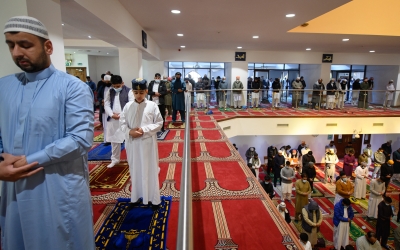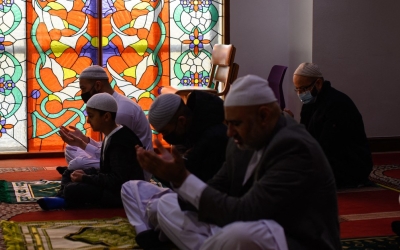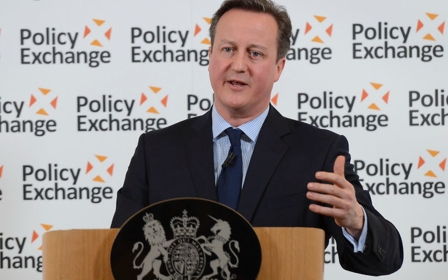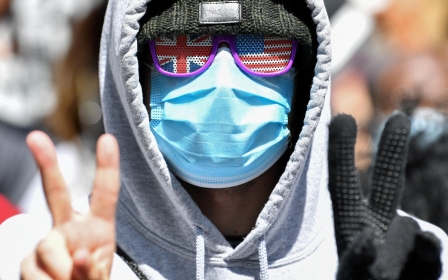An alternative to Prevent? How about democracy
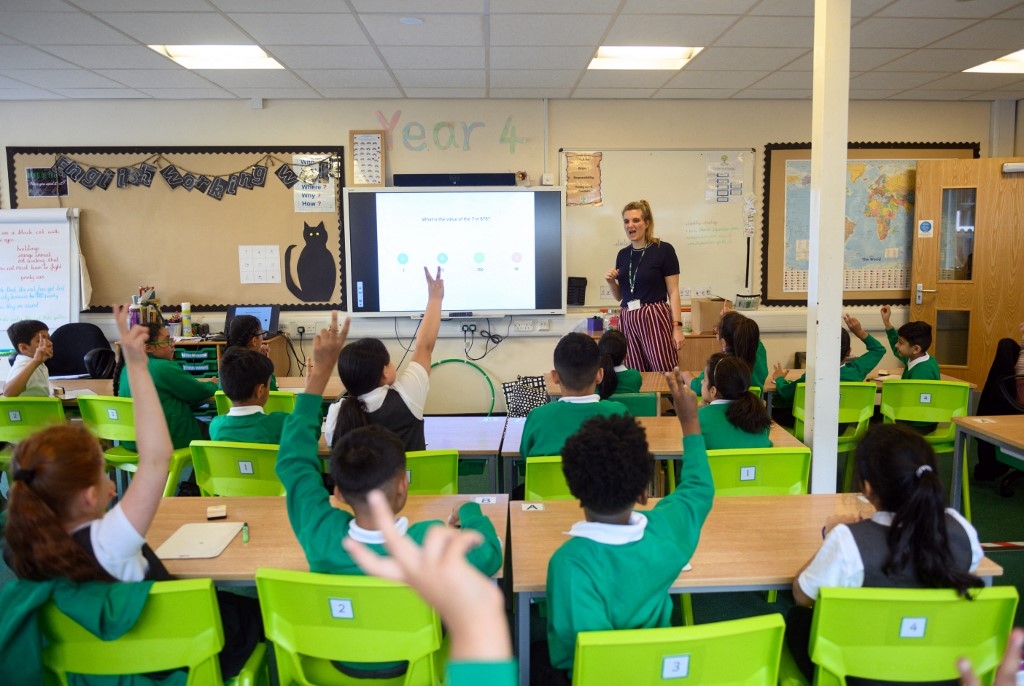
In the People’s Review of Prevent (published in February this year), we showed that Prevent is not working, but also that it couldn’t work.
What, then, is its purpose? Why do some people continue to advocate for it and in terms that involve the hostile name-calling of Prevent’s critics, including that they are extremists and enabling terrorism.
The answer is that it serves an ideological and populist purpose by scapegoating minority communities. But first, let me explain why it doesn’t work and couldn’t work.
Prevent is about something called the 'pre-crime' space and it is based upon a flawed theory that some ideas lead to violence
Stopping terrorism is a good thing, but Prevent isn’t designed to do that. It is one of four streams in the government’s counter-terrorism strategy, Contest.
When references are made to foiling terrorist plots, these success stories are not attributed to Prevent, but to another stream of the counter-terrorism strategy called Pursue.
New MEE newsletter: Jerusalem Dispatch
Sign up to get the latest insights and analysis on Israel-Palestine, alongside Turkey Unpacked and other MEE newsletters
Prevent is about something called the "pre-crime" space and it is based upon a flawed theory that some ideas lead to violence.
The "pre-crime space" is a somewhat dystopian idea that potential perpetrators of criminal offences could be identified in advance and stopped before a crime has taken place. But what then are they guilty of? And how could it be shown that "potential offenders" have been diverted from a path toward a criminal offence?
Technically and logically there is neither intention nor preparation of an act to be foiled if we are in the pre-crime, Prevent space.
Pursue on the other hand is about disrupting such plots where there is evident preparation. This is a job for the intelligence services.
Conveyor belt theory
In the case of Prevent, what is being sought out are signs of what are called "extremist" ideas. Not violent extremism, but ideas that, while being perfectly legal, might be a "gateway" to violent extremism according to the widely dismissed conveyor belt theory.
The conveyor belt theory was developed after a study on a small group of non-violent terrorist offenders that was never meant by its authors for broad application - especially in schools.
Those who are identified based on 22 behavioural/ideological "factors" are identified as being "vulnerable" to "radicalisation".
The suggestion is that they may move from a legitimate means of expressing their ideas and joining with like-minded others to act on them, into the espousal of violence and, from that, criminal acts.
Individuals can be directed away from this path, it is argued, through a voluntary - it must be voluntary because no offences have been committed - programme of re-education called Channel.
Since 2015, all public authorities, be they schools, universities, health services or youth services, must monitor their pupils, students, patients and clients for signs of "extremist" ideas.
These ideas and behaviours are outlined in the Prevent guidelines, which are so vague as to suggest, for example, that "a desire for change" and "a sense of injustices being done" might be signs of "extremism".
According to the Home Office, by 2019 there were over one million people within these services trained in Prevent and told they should report any concerns to designated people within their organisations.
Disturbing, traumatic experience
As we show in our report, some interventions will not go beyond that first stage, while others are reported on to local Prevent panels. In the first stage, Prevent officers (counter-terrorism officers) are involved and will interrogate an individual to determine if the referral is "merited".
This in itself is a disturbing, even traumatic experience, especially in the case of children. This is because Prevent exists under "safeguarding" but also not subject to ordinary criminal justice principles means it occupies a troubling grey area.
Those reported - and a very large proportion will be young people under the age of 20 and children under the age of 15 - have no right to have a parent or other responsible adult present during a Prevent interview with counter-terrorism officers. Indeed, family members are themselves brought under suspicion by the process.
On top of this, the startling statistic is that only five percent of those referred to a Prevent panel, that is, those who are moved from the first to the second stage of reporting, are then considered to warrant being placed onto a Channel programme.
This, however, does not mean that this five percent are likely to, nor can it ever be evidenced will go on to, commit a terrorism offence; rather, they have an idea or thought deemed "risky" within the current government narrative of "risky".
Children and young people
Besides the troubling implications for children and young people, in our People’s Review, we have likened Prevent to a massive "stop and search" exercise. The use of stop and search has been criticised in the case of knife crime for its arbitrary and discriminatory nature. Most searches do not find a knife and are experienced by those subjected to them as alienating and structurally violent.
"Stop and search" under Prevent is much more extensive and equally discriminatory. But, in the case of knife crime, if a knife is found then that is potentially a criminal offence. In the case of Prevent, when something is found, it is not a dangerous weapon, but an idea - or "ideology" - and, moreover, one that is in itself not illegal.
Three-quarters of Muslims in England and Wales live in a special Prevent priority area compared with one-third of the population as a whole
Of course, Prevent is discriminatory. We have shown that around three-quarters of Muslims in England and Wales live in a special Prevent priority area compared with one-third of the population as a whole.
Lobbyists at neoconservative think tanks such as the Henry Jackson Society and Policy Exchange are alarmed that there are increasing numbers reported to Prevent for their right-wing ideologies.
They suggest that this is because of "liberal bias" in those implementing Prevent and argue that "jihadi" terrorism remains the bigger threat (notwithstanding that right-wing terrorist attacks are increasing and are more prevalent in the US and across Europe).
They seem to be suggesting this because the scale of Prevent and the 95 percent rate of "false positives" among referrals makes it unmanageable.
But instead of re-examining the need for Prevent itself, their solution is to double down on Muslim communities.
This is because our current politics discourages dialogue within and across communities. Through Prevent, it seeks to mobilise a majority public’s popular support by scapegoating ethnic and religious minorities and ignoring their real concerns.
'Burning injustices'
Even a powerful advocate of Prevent such as Raffaello Pantucci, the former director of international security studies at the Royal United Services Institute in London, argues that “Prevent cannot ever really be expected to eradicate terrorism”.
He goes on to say: “The answer to dealing with the reality of extremist tendencies might lie in some fundamental changes to our society. It is unclear that Prevent will be able to address this.”
He provides no clue as to what those changes might be.
We agree. We do not argue for an "equal opportunities" Prevent, but for its withdrawal.
Given that Prevent is based on policing thoughts and ideas, the alternative rests in the realm of ideas and their healthy expression.
The advocates of Prevent fear the expression of critical public opinions and seek to restrict and manage them. However, diverse debate has benefits for everyone: it allows resentments and what Theresa May had previously called "burning injustices" to be expressed and articulated within the public sphere.
This in itself has a tendency to mitigate genuinely "extremist" and "violent" views, since safe dialogue allows individuals to moderate one another in a healthy manner and can even build bridges of trust. It is also more suited to the current fabric of British society.
Currently, the labelling of democratically expressed ideas as "extremist" facilitates multiple attacks upon self-organised civil society organisations within Muslim communities. It also pathologises religious expression, both in appearance and in ideas.
Additionally, in its targeting of certain types of activism, instead of drawing young people into healthy political action and dialogue, Prevent is diverting them from it.
Role of schools
Prevent has pushed people away from political involvement in protests, for example, but also from even more mundane organised political and community action. It has also had a negative impact on the expression of ideas in the classroom, something that is a fundamental part of education.
In these spaces, people learn how to interact and act justly together with others, moderate their opinions, and develop their ideas within a common cause.
Troubled youngsters can be identified for appropriate intervention by social services, not the security services
Schools should be able to address what teachers may feel to be problematic opinions, but should be able to do so without placing pupils under the lens of national security; this may even be done within ordinary bullying procedures.
Troubled youngsters can be identified for appropriate intervention by social services, not the security services, who are not trained in child interventions, nor are they suited to them.
For all this to happen there must be the belief that increasing the political and civic participation of all communities is a public good. It is necessary for a safer society since safety hinges upon trust, justice and a recognition of our combined human potential.
The views expressed in this article belong to the author and do not necessarily reflect the editorial policy of Middle East Eye.
Middle East Eye delivers independent and unrivalled coverage and analysis of the Middle East, North Africa and beyond. To learn more about republishing this content and the associated fees, please fill out this form. More about MEE can be found here.



